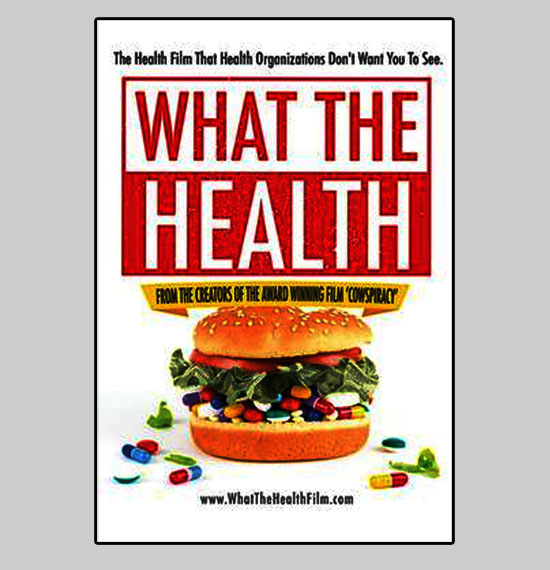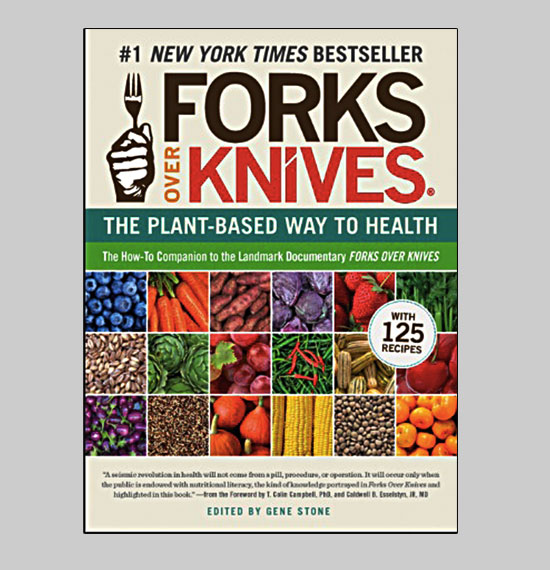My New Year’s resolution: Eat plant-based
My New Year’s resolution for 2021 is a bit different from previous years’. In the past I’d usually vow to lose weight from all the holiday gluttony, but 2020 was such a shocker of a year that I didn’t want to emerge from it unchanged, with the same old pedestrian resolutions as “lose weight,” “eat healthier,” and “work out more.”
The spread of this virus shows that there’s something seriously wrong with the way we’re treating our planet and the other creatures living on it, and COVID is nature’s way of fighting back. And what a stealth warrior it is — a microscopic David that can fell even the strongest Goliath, with the uncanny ability to mutate now that vaccines have been developed.
When the world stopped during the lockdown, I saw how the Earth had a chance to heal: the sky became bluer, everything became quieter, and instead of planes, flocks of birds took over the sky, nesting and singing in the trees of our village.
A growing number of researchers say that the optimal diet for human health is a plant-based one, while the main culprit for fatal illnesses like heart disease is a diet based on animal meat.
The world blooming in the absence of humans led me to the sobering thought that perhaps we were the virus that had been infecting the earth all along, and it was happily returning to the Eden it once was without us gumming up the works.
But I digress. I’d often toyed with the idea of becoming a vegetarian, but was never really serious about it, maybe because I loved wagyu too much; maybe because I thought that food choices were limited, especially on the restaurant front.
But I had a few role models to inspire me: both my boss, Millet Mananquil, and my colleague, Kathy Moran, are longtime vegetarians, for reasons of health and because they both love animals, to the point that they even started our Pet Life section.
My brother Gary recently changed his diet to a plant-based one due to a health scare and because he noticed that many of his former classmates were dying from heart attacks or strokes in their early 50s.
He told me to watch the documentary The Game Changers on Netflix, where UFC fighter James Wilks, after getting injured, interviewed various scientists and athletes on his path to recovery and found that the optimal diet for human health and peak athletic performance is a plant-based one, while the main culprit for fatal illnesses like heart disease is a diet based on animal meat.

The Game Changers was produced by celebrity icons of masculinity and physical prowess like Arnold Schwarzenegger and Jackie Chan. Mr. Universe/The Terminator is now advocating eating salads over steaks? I was impressed… and well on the way to being convinced.
According to the documentary and www.globalagriculture.org, the livestock that we breed for food is the world's largest user of land resources, with almost 80 percent of the earth’s total agricultural land dedicated to the production of their feed.
“One-third of global arable land is used to grow feed, while 26 percent of the Earth's ice-free terrestrial surface is used for grazing,” according to the website.
Another consequence of our meat-eating ways also impacts the environment. It sounds like a joke when you hear that cow farts and burps are contributing to global warming and climate change, but it’s now been proven: “One cow can produce up to 200kg of methane a year,” according to environmental scientist Dani Rabaiotti, co-author of True or Poo? “Most of it is released as burps, but some certainly escapes out of the rear end, too!
Because humans eat so much beef and milk, there are an awful lot of cows in the world, and their burping and farting causes a sizable contribution to our greenhouse gas emissions, making up nearly a third of all emissions from agriculture, by some estimates.
Another reason I want to eat plant-based is that I don’t want to be cruel to animals anymore. Having been raised in a pork-loving society, I loved lechon and chicharon as much as the next person, but whenever I’d see a truck carrying live pigs on the road, certain thoughts would creep in: “They’re so cute! I wonder where they’re going? Probably to a farm somewhere or… a slaughterhouse.”

None of us really think about where the meat we buy at the grocery comes from, and maybe that’s because we’ve been lulled not to think about it. Maybe there’s a reason the meat industry calls it “beef” instead of “dead cow,” “pork” instead of “slaughtered pig,” and “eggs” instead of “chicken embryos.” After all, who would want to buy those products if it had those labels on them?
My brother also told me to watch the films What the Health on Netflix, and Forks Over Knives on YouTube, and they bore out the findings on The Game Changers.
In What the Health, seriously sick people with diabetes, asthma and rheumatoid arthritis who had to take multiple maintenance meds went on a plant-based diet for two weeks and their health improved dramatically. The arthritic woman was able to move without a walker, the diabetic man didn’t need to take his insulin shots anymore, and the asthmatic lady could breathe again.
In Forks Over Knives I was introduced to two American doctors — both in their 80s and in the pink of health — who are gurus in the field of plant-based nutrition.

Dr. Colin Campbell is a leading nutritional biochemist who actually came to the Philippines in the mid-’60s to try to feed protein to millions of our malnourished children. While here he stumbled upon important information, observing that affluent families eating high amounts of animal-based foods were most likely to have children susceptible to liver cancer, an ailment found mainly in adults. “The mere fact that we found it in children said this is significant,” Campbell says. “We learned that animal protein was really good in turning on cancer.”
Yikes. Cleveland Clinic surgeon Dr. Caldwell Esselstyn, meanwhile, came to the same conclusions after operating on hundreds of patients with cancer and heart disease. From all his bypass patients he went one step further and noted that even the fat and oils from fish and plants — which are widely believed to be healthy for us — can form plaques that clog the arteries to the heart, so he advocates not only a plant-based but also a low-fat diet that celebs like former US President Bill Clinton follow.
A growing number of researchers say that if we eliminate or greatly reduce refined, processed and animal-based foods, we can prevent and even reverse several of the worst diseases — cancer, diabetes, heart disease, high blood pressure, hypertension and obesity — simply by adopting a whole-foods, plant-based diet.
This means consuming foods that come mainly from whole, minimally refined plants such as fruits, vegetables, grains and legumes, and avoiding animal-based foods such as meat, dairy and eggs, as well as processed foods like bleached flour, refined sugars and oil.
Sounds like a tall order? When my health and life are on the line, perhaps not. Eating a plant-based diet is one New Year’s resolution I’m determined to keep.
* * *
You can watch The Game Changers and What the Health on Netflix. Forks Over Knives can be viewed on YouTube.


